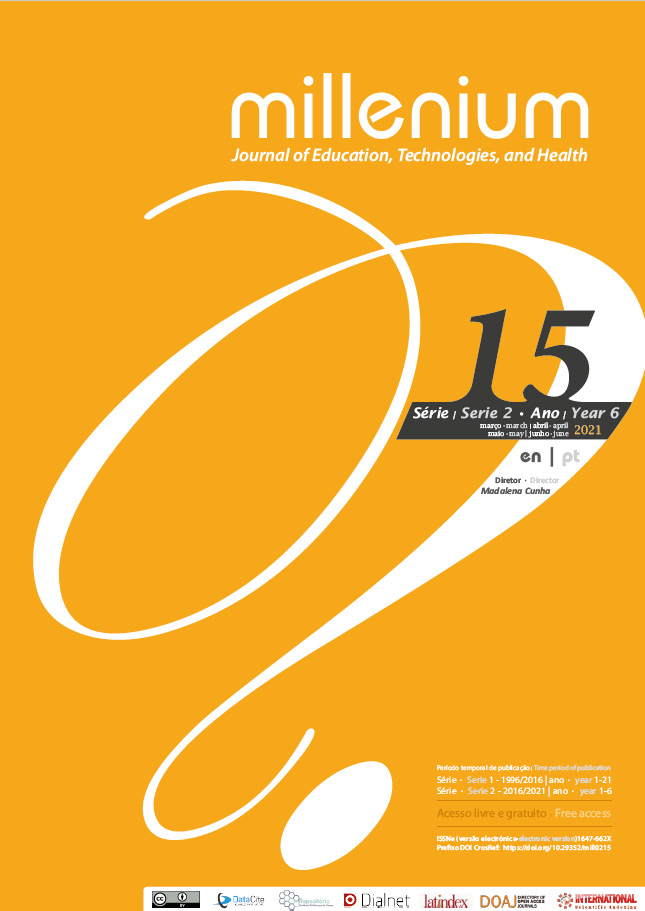Interventions for family members or caregivers of patients taking part in a cardiac rehabilitation program
Scoping Review Pprotocol
DOI:
https://doi.org/10.29352/mill0215.22134Keywords:
cardiac rehabilitation, caregiver, role, healthAbstract
Introduction: Cardiac Rehabilitation (CR) is a multifactorial program, usually composed of structured physical exercise, psychological support and education to promote positive changes in the lifestyle of people with different heart diseases. Most studies define that it is important to involve the family (caregivers) after the diagnosis of heart disease to guarantee the treatment's success, and CR is no different. Not being an implicit objective of secondary prevention of CR, some of the interventions included in CR can positively impact caregivers. Therefore, it is essential to understand which interventions can be used to promote the role of caregiver and their health.
Objective: Map which interventions have been implemented that support caregivers of patients with the cardiac disease taking part in a cardiac rehabilitation program, in their role and health.
Methods: Scoping Review guided by the methodology proposed by the Joanna Briggs Institute for conducting Scoping Reviews. Two independent reviewers will evaluate the relevance of the articles, the extraction and synthesis of the data. Studies written in English, Spanish and Portuguese, published after 1950, will be considered for inclusion in this review, researched in the following bibliographic sources: CINAHL Complete (Via EBSCO); PubMed; Scopus; SciELO; Cochrane Library; Pedro; DART-Europe; OpenGrey and RCAAP .
Results: With this scoping review, it's proposed to include several studies that unequivocally demonstrate the existence of interventions with a positive and facilitating impact on health and the role of caregivers of people with heart disease in CR programs.
Conclusion: This systematic review protocol provides mapping interventions to the caregiver of people with heart disease, demonstrating the added value of being integrated into CR programs.
Downloads
References
Arksey, H., & O'Malley, L. (2005). Scoping studies: towards a methodological framework. International Journal of Social Research Methodology, 8(1), 19–32. https://doi.org/10.1080/1364557032000119616
Bäck, M., Hansen, T. B., & Frederix, I. (2017). Cardiac rehabilitation and exercise training recommendations. Cardiac rehabilitation: rationale, indications and core components. Retrieved from https://www.escardio.org/Education/ESC-Prevention-of- CVD-Programme/Rehabilitation
Bouchard, K., Brownrigg, J., Quinlan, B., Bilodeau, J., Higdon, G., & Tulloch, H. (2020). Supporting the Health and Well-being of Caregivers. The Journal of Cardiovascular Nursing, 35(3), 268–272. https://doi.org/10.1097/JCN.0000000000000678
Fletcher, G. F., Landolfo, C., Niebauer, J., Ozemek, C., Arena, R., & Lavie, C. J. (2018). Promoting Physical Activity and Exercise: JACC Health Promotion Series. Journal of the American College of Cardiology, 72(14), 1622–1639. https://doi.org/10.1016/j.jacc.2018.08.2141
Lang, C. C., Smith, K., Wingham, J., Eyre, V., Greaves, C. J., Warren, F. C., … REACH-HF investigators. (2018). A randomised controlled trial of a facilitated home-based rehabilitation intervention in patients with heart failure with preserved ejection fraction and their caregivers: the REACH-HFpEF Pilot Study. BMJ Open, 8(4), e019649. https://doi.org/10.1136/bmjopen-2017- 019649
Levac, D., Colquhoun, H., & O'Brien, K. K. (2010). Scoping studies: advancing the methodology. Implementation Science, 5(1), 69. https://doi.org/10.1186/1748-5908-5-69
Novo, A., Delgado, B., Mendes, E., Lopes, I., Preto, L., & Loureiro, M. (2020). Reabilitação cardíaca - evidência e fundamentos para a prática. Loures: Lusodidacta.
Peters, M. D. J., Godfrey, C. M., Khalil, H., McInerney, P., Parker, D., & Soares, C. B. (2015). Guidance for conducting systematic scoping reviews. International Journal of Evidence-Based Healthcare, 13(3), 141–146. https://doi.org/10.1097/XEB.0000000000000050
Peters, M., Godfrey, C., McInerney, P., Soares, C., Khalil, H., & Parker, D. (2015). Methodology for JBI scoping reviews. The Joanna Briggs Institute reviewers' manual (pp. 1–24). pp. 1–24. Adelaide (Australia): The Joanna Briggs Institute, The University of Adelaide.
Sumner, J., Harrison, A., & Doherty, P. (2017). The effectiveness of modern cardiac rehabilitation: A systematic review of recent observational studies in non-attenders versus attenders. PLOS ONE, 12(5), e0177658. https://doi.org/10.1371/journal.pone.0177658
The, E., & Jarrett, M. J. (2019). Impact of intensive basic life support training as part of cardiac rehabilitation program: Targeting family versus non-family bystanders. European Journal of Preventive Cardiology, 26(8), 793–794. https://doi.org/10.1177/2047487319830486
Uithoven, K. E., Smith, J. R., Medina-Inojosa, J. R., Squires, R. W., & Olson, T. P. (2020). The Role of Cardiac Rehabilitation in Reducing Major Adverse Cardiac Events in Heart Transplant Patients. Journal of Cardiac Failure, 26(8), 645–651. https://doi.org/10.1016/j.cardfail.2020.01.011
Wingham, J., Frost, J., Britten, N., Greaves, C., Abraham, C., Warren, F. C., … Taylor, R. S. (2019). Caregiver outcomes of the REACH-HF multicentre randomised controlled trial of home-based rehabilitation for heart failure with reduced ejection fraction. European Journal of Cardiovascular Nursing, 18(7), 611–620. https://doi.org/10.1177/1474515119850011
Chauvet-Gelinier, J. C., & Bonin, B. (2017). Stress, anxiety and depression in heart disease patients: A major challenge for cardiac rehabilitation. Annals of physical and rehabilitation medicine, 60(1), 6–12. https://doi.org/10.1016/j.rehab.2016.09.002
Sommaruga, M., Angelino, E., Della Porta, P., Abatello, M., Baiardo, G., Balestroni, G., … Pierobon, A. (2018). Best Practice in Psychological Activities in Cardiovascular Prevention and Rehabilitation: Position Paper. Monaldi Archives for Chest Disease, 88 (2). https://doi.org/10.4081/monaldi.2018.966
Downloads
Published
How to Cite
Issue
Section
License

This work is licensed under a Creative Commons Attribution 4.0 International License.
Authors who submit proposals for this journal agree to the following terms:
a) Articles are published under the Licença Creative Commons (CC BY 4.0), in full open-access, without any cost or fees of any kind to the author or the reader;
b) The authors retain copyright and grant the journal right of first publication, allowing the free sharing of work, provided it is correctly attributed the authorship and initial publication in this journal;
c) The authors are permitted to take on additional contracts separately for non-exclusive distribution of the version of the work published in this journal (eg, post it to an institutional repository or as a book), with an acknowledgment of its initial publication in this journal;
d) Authors are permitted and encouraged to publish and distribute their work online (eg, in institutional repositories or on their website) as it can lead to productive exchanges, as well as increase the impact and citation of published work
Documents required for submission
Article template (Editable format)





